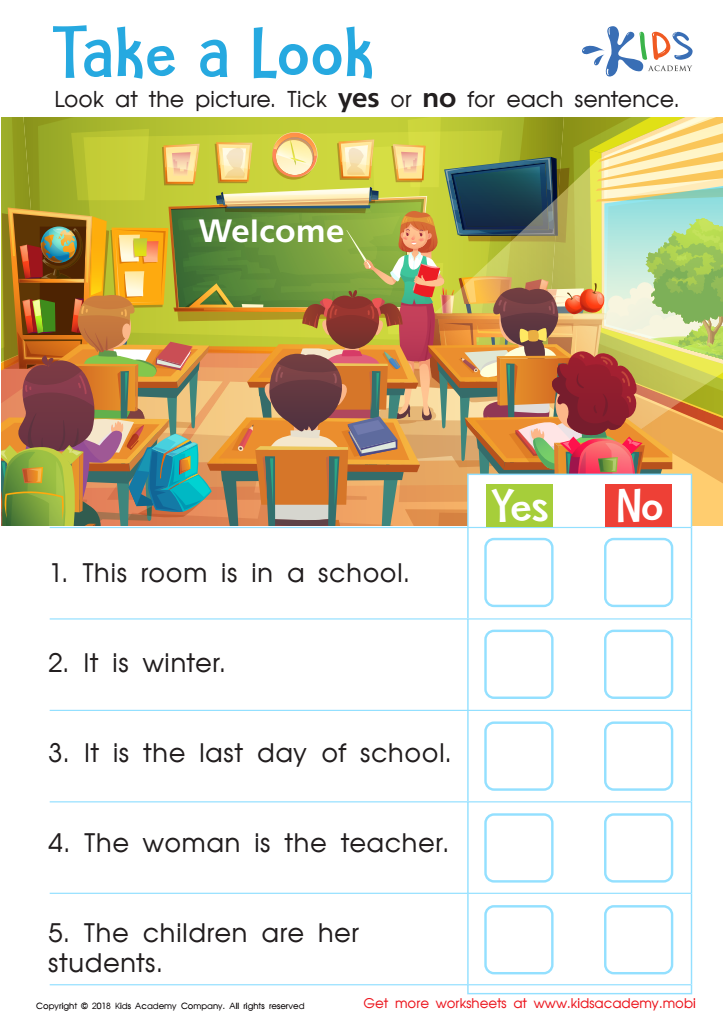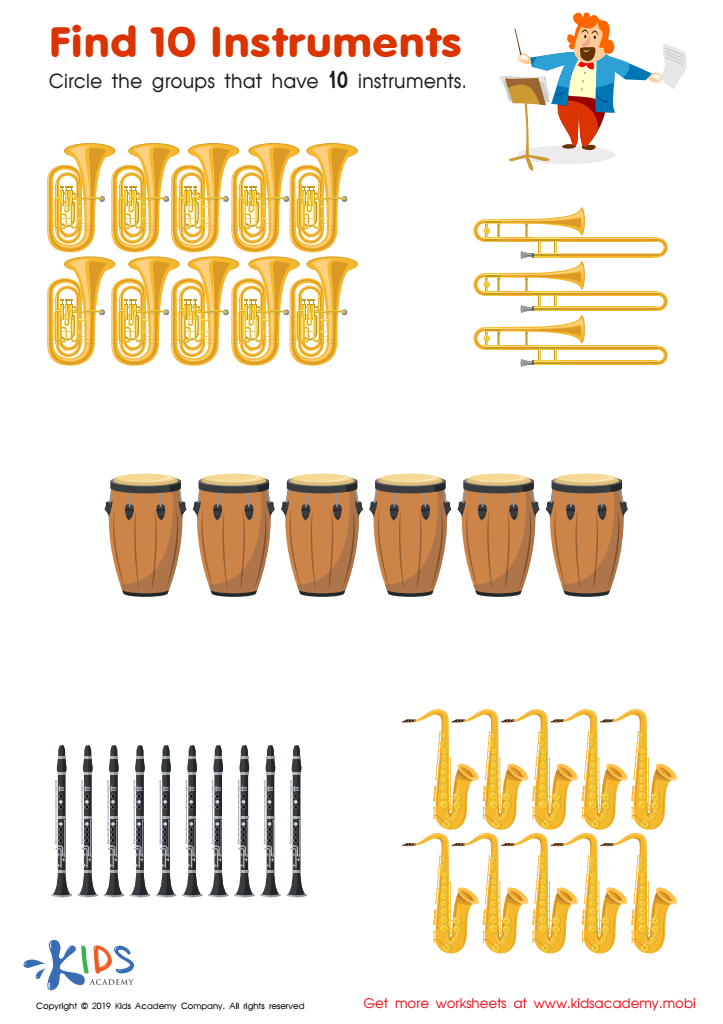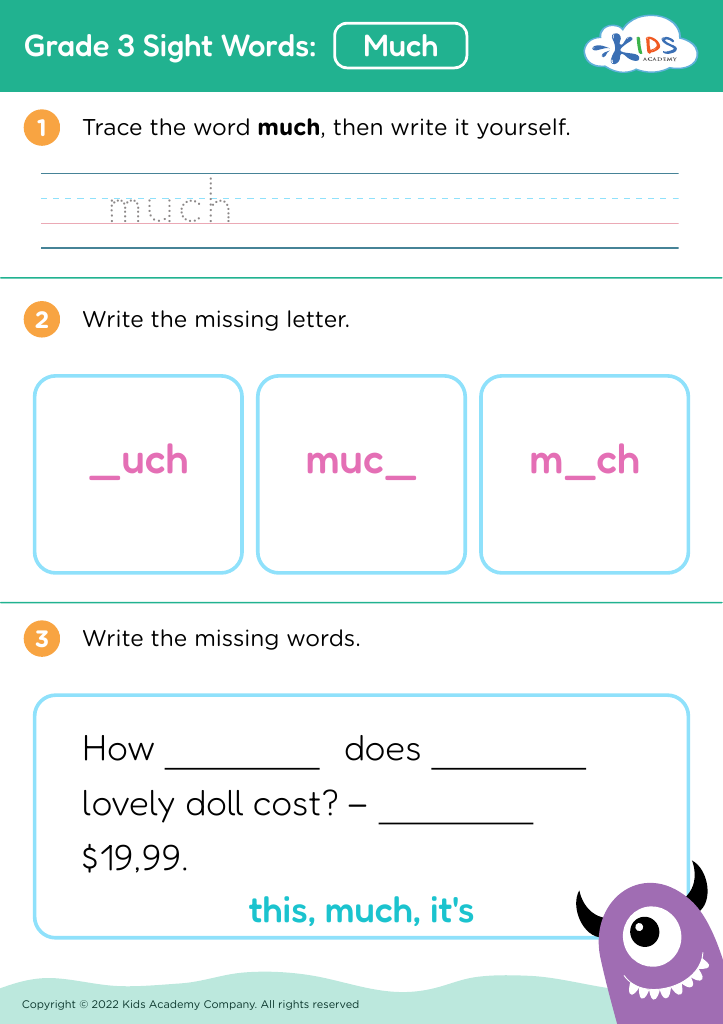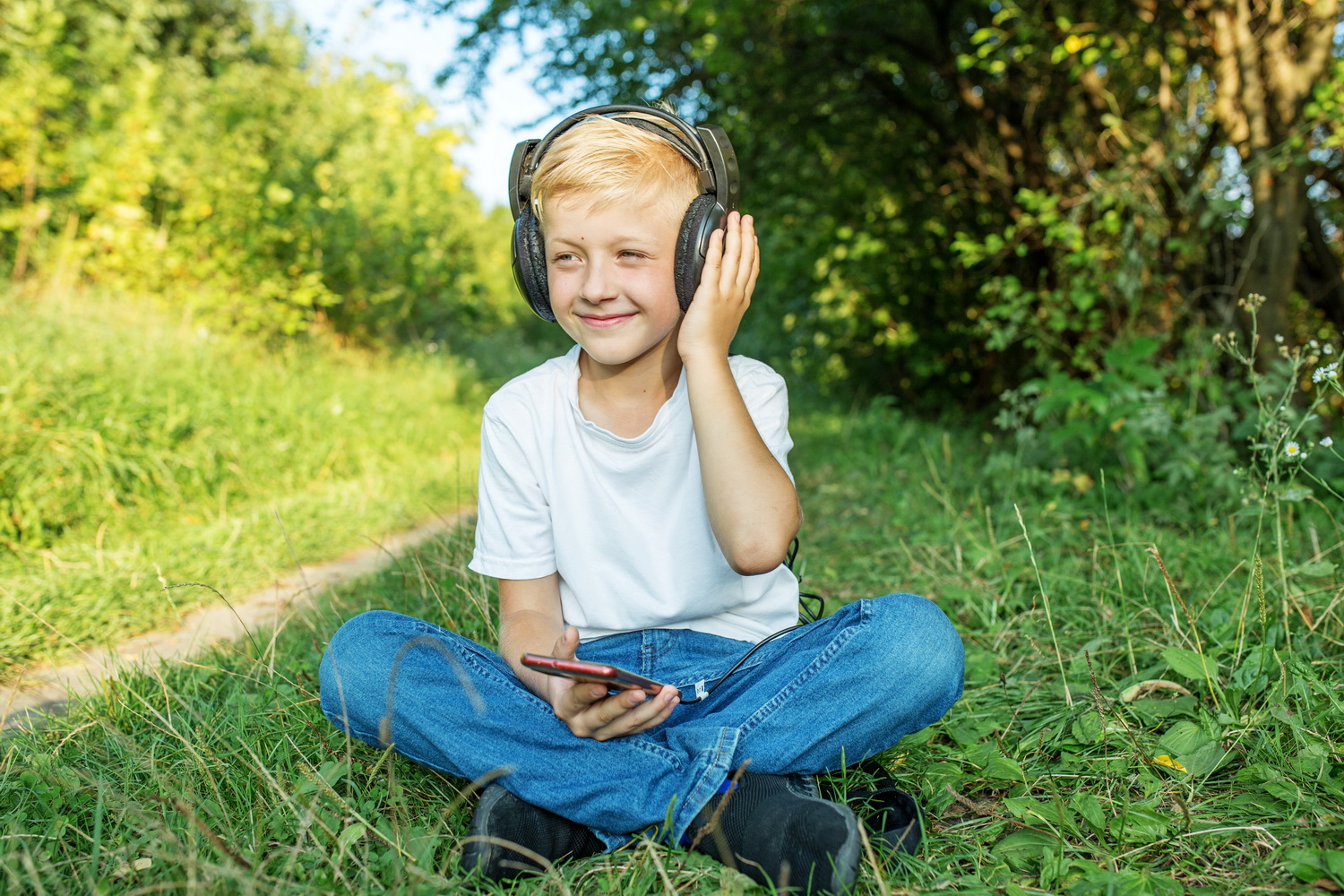Enhance observation skills Worksheets for Ages 6-8
4 filtered results
-
From - To
Unlock your child's potential with our "Enhance Observation Skills Worksheets" designed for ages 6-8! These engaging worksheets focus on fostering critical observation skills, essential for academic success and daily activities. Through fun and interactive exercises, children will learn to notice details, identify patterns, and improve their attention to the world around them. Each worksheet is tailored to make learning enjoyable, encouraging young minds to explore and discover. Perfect for home or classroom use, these resources will support your child's cognitive development while sparking their curiosity. Start enhancing your child's observation skills today for a brighter future in learning!


Take a Look - Part 2 Worksheet


Find 10 Instruments Worksheet
Enhancing observation skills in children aged 6-8 is crucial for their cognitive and emotional development. During these formative years, children are naturally curious and eager to explore their environment. By sharpening their observational skills, parents and teachers can foster critical thinking and problem-solving abilities. This skill enables children to notice details, patterns, and relationships in their surroundings, contributing to their early scientific literacy.
Furthermore, strong observation skills support social-emotional learning. When children learn to observe not just objects, but also social cues, they can better understand their peers' feelings and reactions. This empathy can lead to improved communication skills and more meaningful relationships.
Engaging children in observation-based activities—such as nature walks, art projects, or simple daily routines—allows them to express their thoughts and ideas. This also enhances their vocabulary and narrative skills through descriptive language.
Moreover, sharpening these skills prepares children for future academic challenges. Observation is the foundation of inquiry-based learning and scientific exploration. By prioritizing observation in learning, adults can nurture inquisitive, self-directed learners who approach problems with confidence and creativity. In essence, cultivating children's observational abilities today lays the groundwork for lifelong skills in learning, emotional intelligence, and interpersonal interactions.

 Assign to My Students
Assign to My Students






















